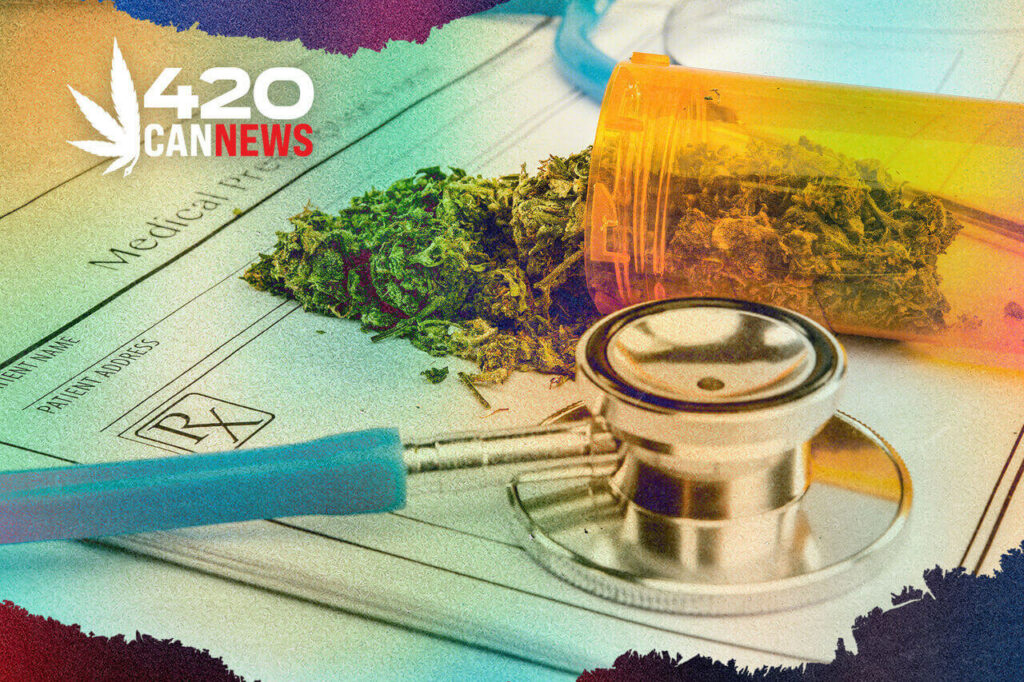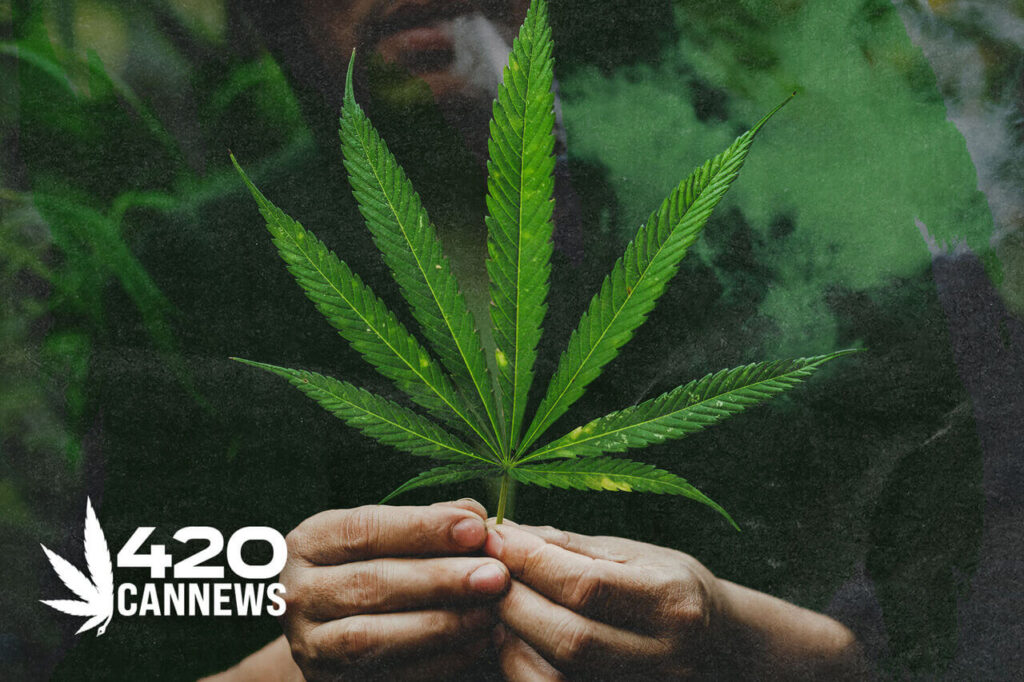JACKSONVILLE BEACH, Fla. – Just as the stigma of being stoned is giving way to the consideration of benefits like reducing inflammation, calming nerves, or relieving back pain, a new specter of caution is rising in the cannabis corner. That new boogie man is called “cannabis use disorder” or CUD.
The problem is just like the name suggests: people can use cannabis for health or mental health goals but simply use it too much–to the point where it impairs their physical health or social lives, according to the Centers for Disease Control. Three in 10 marijuana users in one study fell victim to CUD.
It’s like throwing a party but forgetting to invite people.
The Growing Science of CUD
Research surrounding the condition includes a randomized clinical trial with 186 participants, wherein the immediate procurement of a pot medical card—without a period of client assessment—led to an increased incidence and severity of CUD.
Symptoms of Pain, Anxiety, or Depression Didn’t Improve
Findings like this force potheads to confront the complexities of cannabis use and open up an important dialogue about how the public understands cannabis in therapeutic settings. This is by far a new segment in the cannabis corner to accept the benefits one can get from the miracle plant.
Dr. Julian Lagoy, a veteran psychiatrist from Mindpath Health, suggested easing up on “handing out medical marijuana cards like candy.” While cannabis chills people out and increases dopamine levels, he said, the risk of CUD is real.
Another expert, Dr. Matt Glowiak, an addiction specialist and therapist, said these findings aren’t surprising. He pointed out the complex interplay between mental health disorders and substance use. “This means we’re going to need much more research on this topic,” he said.
These recent findings starkly contrast with the growing wave of folks leaning on cannabis to deal with anxiety and depression. However, it’s also a reality check, prompting users to rethink how they perceive and handle medical marijuana.
Is Cannabis Addictive?
Cannabis, contrary to popular opinion, is an addictive substance. According to research, around 9% of users acquire addiction. Addiction is more common among those who begin using at a young age and those who take the drug daily.
Attempting to stop using cannabis might cause withdrawal symptoms in people with cannabis addiction. Although no drugs exist to treat marijuana or cannabis addiction, recent research on the endocannabinoid system shows promise for developing drugs to lessen withdrawal symptoms, block the drug’s intoxicating effects, and prevent relapse.
The Short and Long-Term Effects of Marijuana
Cannabis contains delta-9-tetrahydrocannabinol (THC), a psychoactive compound responsible for the “high” that users experience. When a person uses marijuana, THC quickly passes from the lungs into the bloodstream, which carries the chemical to the brain and other organs.
Short-Term Side Effects of Marijuana
The short-term effects of marijuana are multi-faceted and can differ between individuals. These effects can manifest physically, mentally, and emotionally, often immediately after use.
Physical short-term effects include an increased heart rate and red eyes, with more serious consequences involving impaired movement and coordination. On the cognitive front, marijuana use can lead to an altered sense of time, mood changes, and short-term memory issues. These effects can be accompanied by hallucinations, anxiety, and paranoia, significantly disrupting users’ mental well-being.
It is important to note that the strength and duration of these short-term effects are contingent on various factors, such as the method of consumption, the individual’s tolerance level, and the THC concentration in the marijuana used.
Long-Term Side Effects of Marijuana
Continuous use of marijuana over a significant period can lead to lasting, harmful effects on an individual’s physical and mental health.
Brain development can be notably impacted by marijuana, with heavy usage in the teenage years potentially resulting in a decline in IQ. This can lead to long-lasting difficulties with memory, focus, and problem-solving, which may impede academic performance and work productivity.
Long-term marijuana use can also harm respiratory health, increasing the risk of lung infections and other respiratory diseases. Additionally, marijuana usage during pregnancy can lead to adverse pregnancy outcomes, including low birth weight and potential cognitive difficulties in children.
Marijuana Cravings and the Risk of Cannabis Use Disorder
When it comes to marijuana cravings, it can be a significant indicator of cannabis use disorder, which affects roughly 30% of marijuana users. Cravings, along with symptoms such as neglecting important activities, excessive use, and failed attempts to quit, are all signs of this disorder. With time, users may develop a tolerance, leading to higher concentrations of marijuana being used to achieve the desired effects.
It’s also worth mentioning that starting marijuana use during youth and frequent use significantly increases the risk of developing cannabis use disorder. This disorder is associated with various cognitive issues, including attention, memory, and learning problems.
THC Concentrate Types and Their Impact
The concentration of tetrahydrocannabinol (THC), the primary psychoactive compound in cannabis, plays a significant role in marijuana’s impact on the user. It’s worth noting that the different types of THC concentrates in marijuana have almost doubled recently, with dispensaries offering even stronger products.
Methods such as dabbing and vaping concentrates can deliver high THC levels. These THC-rich extracts can exacerbate both the short-term and long-term effects of marijuana usage, increasing the risk of harmful reactions. The relationship between these high THC concentrations and their long-term effects, particularly in relation to marijuana use disorder, is still under investigation.
Marijuana Addiction Treatment
Similar treatment programs and protocols exist for alcohol and other substance addictions, as do treatment options or “rehab” for marijuana addiction. Depending on the situation, additional substance usage, and treatment requirements of the individual, evidence-based therapies, including Twelve Step facilitation, cognitive-behavioral therapy, motivational enhancement therapy, and other relevant scientific approaches, can be useful for treating addiction.
Treatment approaches for marijuana use disorder share similarities with those for other substance use disorders. These treatments generally focused on behavioral interventions, as there are currently no FDA-approved medications for this disorder.
Cognitive-behavioral therapy, motivational enhancement therapy, and contingency management are common behavioral treatments. Cognitive-behavioral therapy aims to correct problematic behaviors and ways of thinking, motivational enhancement therapy works on fostering internal motivation and facilitating change. At the same time, contingency management provides rewards for positive behavior.

In addition, ongoing research investigates the potential effectiveness of various medications and nutritional supplements to alleviate withdrawal symptoms and reduce use. While these treatments can be beneficial, their effectiveness may vary based on individual factors such as genetic predisposition, age, and the severity of the disorder.
Walking a Tightrope Between Relief, Risk
While CUD is a valid concern, the potential benefits extend beyond treating physical ailments to relieving those hooked on alcohol or opioids. That means finding balance and recognizing the potential benefits of cannabis while also being aware of the risks.
Looking ahead, cannabis users will need to develop personalized marijuana addiction treatment plans considering the unique mix of someone’s biology, psychology, and life situation. Working with healthcare experts, users can ensure that their treatment plans are tailored to an individual’s unique biology, psychological makeup, and social surroundings.
So, it’s clear in the cannabis corner that the conversation around medical cannabis is far from over. But the opportunity is clear. The challenge of CUD represents an opportunity to reassess and hone people’s approach to weed, ensuring that the promise of cannabis as a treatment doesn’t eclipse the potential risk of misuse.
For updated marijuana news today in the world of weed, subscribe to 420CanNews and enjoy receiving informative news to be in the loop.
— Story Filed By 420CanNews Staff
Here’s More Information on the Topic:
Cannabis Use Disorder Is “Common” Among Marijuana Users, Study Finds
https://www.nytimes.com/2023/08/29/health/cannabis-marijuana-disorder.html
Cannabis Use Disorder Is Common in One State Where Marijuana Is Legal
https://edition.cnn.com/2023/08/29/health/medical-marijuana-cannabis-use-disorder/index.html
Marijuana Addiction Is Real. Those Struggling Often Face Skepticism.
https://www.washingtonpost.com/health/2023/07/31/marijuana-addiction-legal-recreational-sales/


